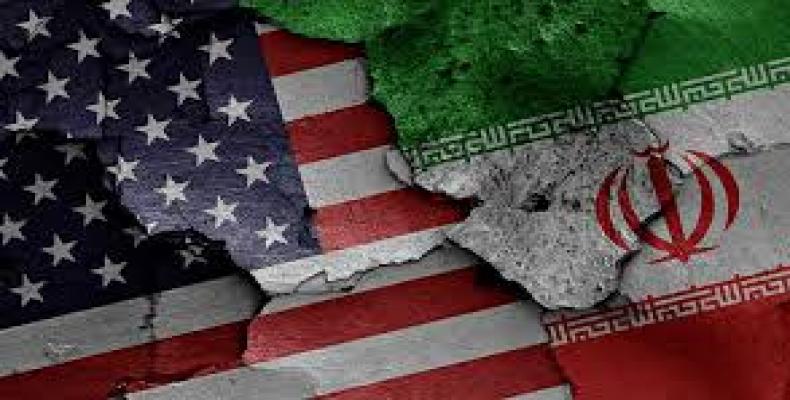Tehran, April 24 (RHC)-- The spokesperson for the Iranian Foreign Ministry, Abbas Mousavi, issued a statement warning of "adverse consequences" if the U.S. ended their sanctions waiver on the Persian Gulf nation's oil imports. "Given the illegal nature of the U.S. sanctions, Iran has not and will not consider any value for the waivers granted," Mousavi said. "However, in view of the negative effects in politics of these sanctions ... Iranian Foreign Ministry has been continuously in touch with relevant domestic institutions while holding comprehensive consultations with many foreign partners, including Europeans."
The Trump administration announced earlier this week that they would be cancelling waivers to eight countries buying oil from Iran as they tighten the economic blockade against the Persian Gulf nation. Mousavi said Iran will take appropriate actions to counter the U.S. move, adding that his government will make it public.
Not everyone in the Iranian government and military were as cordial as Mousavi, the commander of the Islamic Revolutionary Guard Corps' Navy, Alireza Tangsiri, vowed to take harsher actions against the U.S. Tangsiri vowed to close the important Strait of Hormuz, which would be a major blow to the U.S. Navy who is currently docked at their largest Middle Eastern naval base in Bahrain.
“If we are prevented from using it, we will close it,” Tangsiri said, as cited by the state-run Fars News Agency. “In the event of any threats, we will not have the slightest hesitation to protect and defend Iran’s waterway.”
Iran's oil exports have dropped to about 1 million barrels per day (bpd) from more than 2.5 million bpd prior to the re-imposition of sanctions.
U.S. Secretary of State Mike Pompeo, in a briefing earlier this week, said "we're going to zero across the board," saying the United States had no plans for a grace period for compliance beyond May 1st. The White House intends to deprive Iran of its lifeline of $50 billion in annual oil revenues, Pompeo said, as it pressures Tehran to curtail its nuclear program, ballistic missile tests and support for conflicts in Syria and Yemen.
A senior administration official said President Donald Trump was confident Saudi Arabia and the United Arab Emirates will fulfill their pledges to compensate for the shortfall in the oil market. U.S. Assistant Secretary of State for Energy Resources Frank Fannon said Riyadh was taking "active steps" to ensure global oil markets were well supplied.
Saudi Arabian Energy Minister Khalid al-Falih, in a statement issued in Riyadh, did not commit to raising production, saying it was "monitoring the oil market developments" after the U.S. statement, and that it would coordinate with other oil producers to ensure a balanced market. OPEC is next scheduled to meet in June.
While Saudi Arabia is expected to boost output again, analysts fear the U.S. move -- along with sanctions on Venezuela -- will leave the world with inadequate spare capacity.
Iranian Revolutionary Guard vows to block U.S. ships from Strait of Hormuz

Articles en relation
Commentaires
Laissez un commentaire
Tous les champs sont requis
En reproduction maintenant
Desde Mi Habana
Au suivant
- La Trova Cubana
- Un lugar para la poesía
- Reflejos
Plus de visites
- Les États-Unis annoncent des restrictions en matière de visas liées à la coopération médicale internationale de Cuba
- Le chanteur populaire Paulo F.G. meurt dans un accident de voiture à La Havane
- Cuba : les migrants à Guantanamo sont une provocation et un affront à la souveraineté (+Photos)
- Le gouvernement cubain condamne les intentions des États-Unis concernant la base navale de Guantanamo
- La fermeture de l'USAID ne signifie pas la fin des agressions contre Cuba

